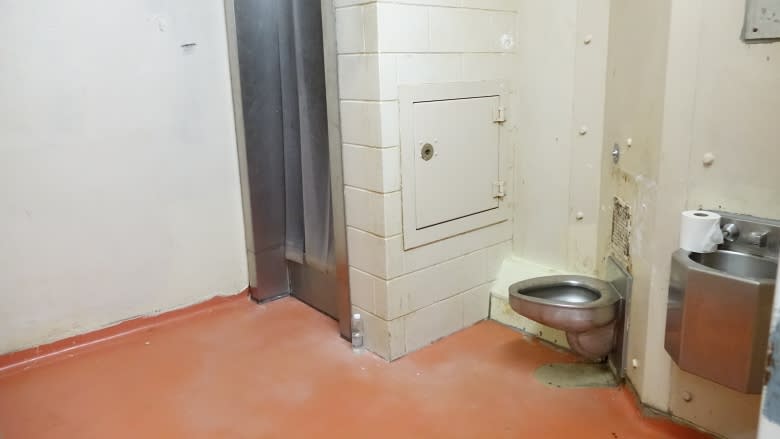Ottawa to get new jail to replace Innes Road facility
Ottawa is getting a new, larger jail to replace the overcrowded, problem-plagued Ottawa-Carleton Detention Centre (OCDC), but not everyone is convinced a bigger facility will necessarily be better.
The announcement of a 725-bed "multi-purpose correctional centre" was made Thursday morning by Marie-France Lalonde, Ontario's minister of Community Safety and Correctional Services.
"This investment will increase capacity and reduce overcrowding," she said.
The new jail is expected to be completed "within the next five to seven years," according to a spokesperson with the ministry. There is no word on where it might be built.
Irene Mathias, a community member of Mothers Offering Mutual Support, a group of women whose children are in jail or working their way through the justice system, won't be sad to see the OCDC go.
'An unhygienic, rotten wreck'
For years, the complaints about the jail have included rotten food, lack of proper health care and inmates sleeping on floors beside toilets. The jail currently houses about 500 inmates.
"It's an unhygenic, rotting wreck," Mathias said.
But Mathias, who sat on the Ottawa-Carleton Detention Centre Task Force last year, said a new building won't solve all the problems with the justice system that created issues at the jail.
"Health care, food, phones, segregation, crowding due to failures in the bail system and courts, lack of programing, and the day-to-day treatment of prisoners," she said. "These are serious issues that won't be solved with a big shiny, new facility."
Mathias said she'd rather see money spent on crime prevention, restorative justice and addressing poverty and social issues in the community that result in people ending up in jail in the first place.
Announcement follows segregation report
The jail came just after the presentation of a report on segregation by Howard Sapers, Ontario's independent advisor on corrections reform, which made 63 recommendations to reduce the use of segregation and increase accountability surrounding it.
The report recommends that solitary confinement be used on an inmate for no longer than 15 consecutive days. Cumulatively, it should not be used for more than 60 days, and that should be allowed only in extreme cases where an extensive review has occurred. It should never be used on an indefinite basis, he added.
Sapers told reporters he's pleased with the government's initial response to his findings.
Lalonde said the province is "committed" to each of the recommendations as correctional reform continues.
"I will say right now that we need to do better," she said, adding that a significant amount of work needs to be done.




